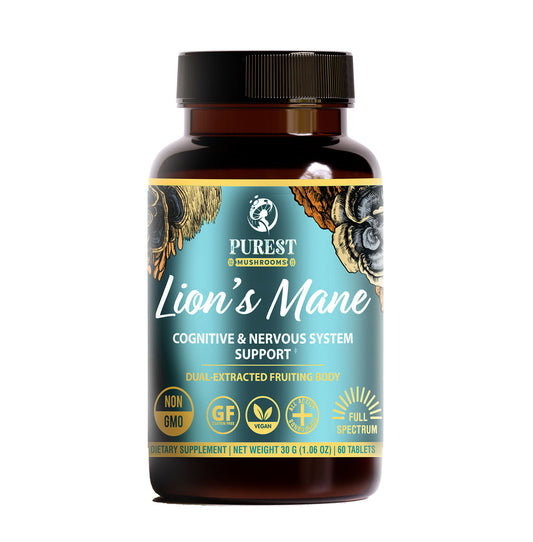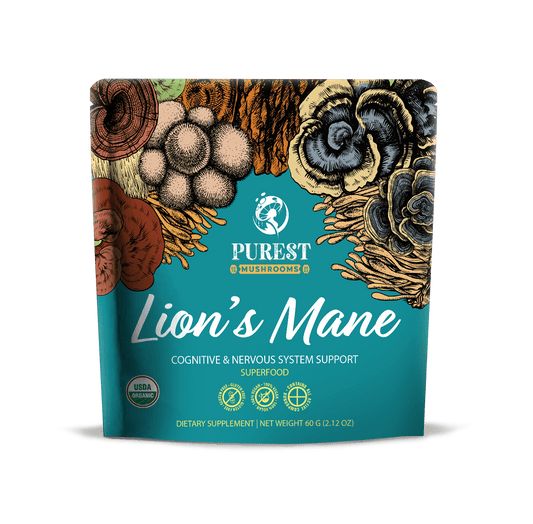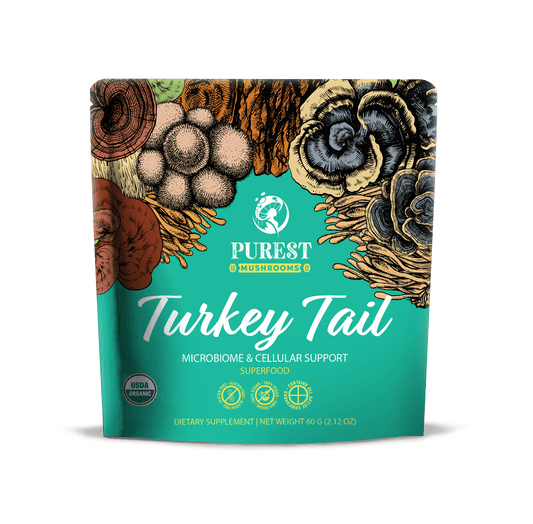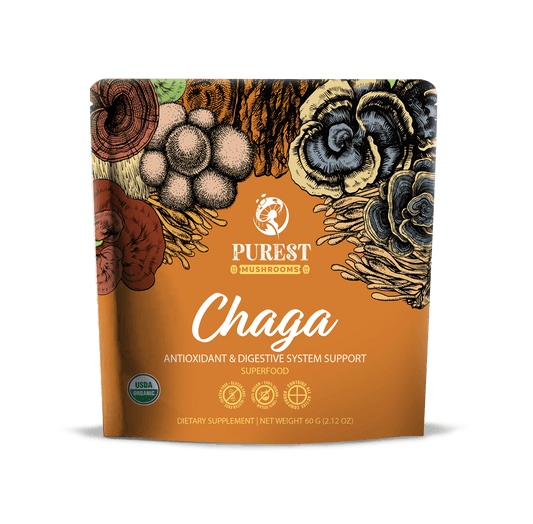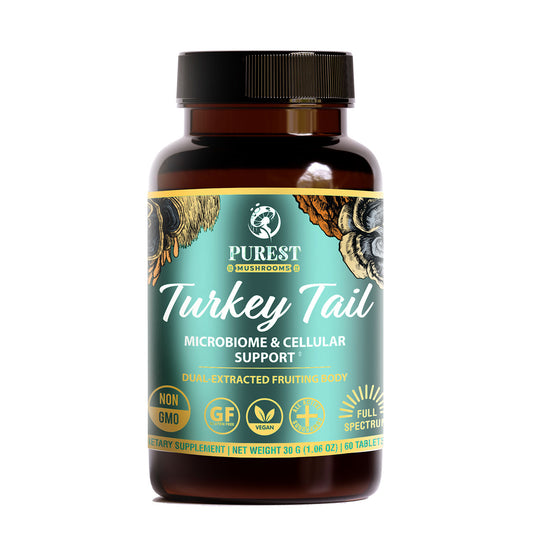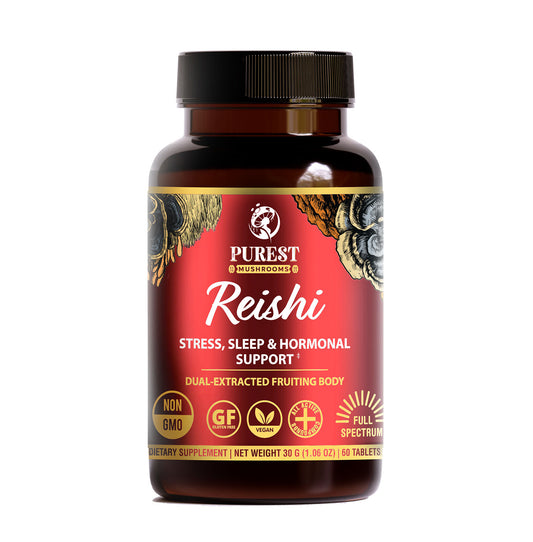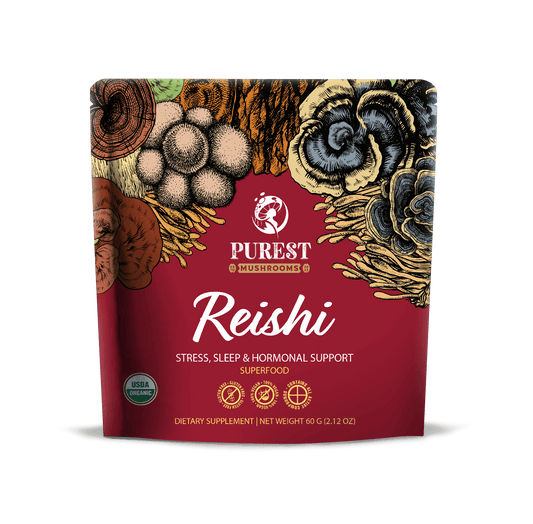In the depths of the world's forests, hidden amidst the trees, lies a remarkable organism that has captivated the attention of herbalists, scientists, and health enthusiasts alike—the chaga mushroom. With its intriguing appearance and a long-standing history in traditional medicine, chaga has emerged as a popular superfood in recent years. In this article, we will delve into the world of chaga and uncover the secrets behind its growing popularity.

A Brief Encounter with Chaga
Chaga, scientifically known as Inonotus obliquus, is a parasitic fungus that primarily grows on birch trees in cold climates. Found in regions such as Siberia, Canada, and parts of Northern Europe, chaga has been used for centuries in traditional Siberian and Eastern European medicine. It often resembles a charred, blackened mass on the tree bark, creating an otherworldly appearance.
Rich in Nutrients and Antioxidants
One of the main reasons for the increasing interest in chaga is its impressive nutritional profile. Packed with a wide array of vitamins, minerals, and antioxidants, chaga is a powerhouse of health benefits. It contains B-complex vitamins, potassium, zinc, iron, and magnesium, making it a valuable addition to a well-rounded diet.
However, what truly sets chaga apart is its high concentration of antioxidants. Chaga boasts an abundance of polyphenols, including phenolic compounds like melanin, flavonoids, and triterpenes. These antioxidants have been linked to numerous health benefits, such as reducing inflammation, strengthening the immune system, and combating oxidative stress.
Immune-Boosting and Anti-Inflammatory Properties
Chaga has gained attention for its potential immune-boosting properties. Its bioactive compounds, such as beta-glucans, have been found to enhance the activity of immune cells, promoting a healthy immune response. Regular consumption of chaga may help strengthen the body's defenses against infections and diseases.
Furthermore, chaga has been traditionally used as an anti-inflammatory agent. Studies have shown that chaga extracts exhibit anti-inflammatory properties, which may be attributed to its rich antioxidant content. This makes it a promising natural remedy for individuals dealing with chronic inflammation or inflammatory conditions.
Potential Cancer-Fighting Abilities
Research into chaga's potential anti-inflammatory properties is still in its early stages, but the initial findings are promising. Chaga extracts have been shown to inhibit the growth of inflammatory cells in test tubes and animal studies. These effects may be attributed to the presence of betulinic acid and other bioactive compounds found in chaga. However, it's important to note that further studies are needed to determine the full extent of chaga's cancer-fighting potential.
Supporting Overall Well-being
Beyond its immune-boosting and anti-inflammatory effects, chaga is believed to provide a range of additional health benefits. These include supporting liver health, aiding digestion, promoting skin elasticity, and even improving cognitive function. While more research is needed to validate these claims, the long history of traditional use and anecdotal evidence suggest that chaga has a positive impact on overall well-being.
As the interest in natural remedies and holistic approaches to health continues to grow, chaga has emerged as an intriguing superfood with remarkable potential. Packed with nutrients, antioxidants, and bioactive compounds, chaga offers an array of health benefits, from supporting the immune system to reducing inflammation. However, it's important to remember that chaga is not a cure-all, and more scientific research is required to fully understand its effects on human health.
Whether you're an herbal enthusiast or simply curious about exploring nature's offerings, chaga is undoubtedly worth giving a closer look. It's crucial to note that chaga should be consumed responsibly and in moderation, and consulting with a healthcare professional is always advisable before incorporating any new supplement into your routine.
In recent years, chaga has gained popularity in various forms, including chaga tea, chaga extracts, and chaga supplements. Chaga tea is a common preparation method, where the mushroom is steeped in hot water to create a flavorful and health-boosting beverage. The extracts and supplements, on the other hand, provide a concentrated dose of chaga's beneficial compounds for those seeking a more potent form.
When sourcing chaga products, it's important to choose high-quality, sustainably harvested options. Due to the increasing demand, there have been concerns about overharvesting and the impact on wild chaga populations. Look for reputable brands that prioritize sustainable practices and ethically source their chaga.
In conclusion, chaga, the enigmatic mushroom that grows in the depths of forests, has earned its reputation as a superfood due to its impressive nutrient profile and potential health benefits. While scientific research is ongoing, the long-standing traditional use and emerging studies highlight the promising properties of chaga, particularly its immune-boosting, anti-inflammatory, and potentially anti-inflammatory effects.
Incorporating chaga into your diet may be an intriguing way to support your overall well-being. However, it's important to remember that chaga is not a substitute for medical treatment or professional advice. As with any natural remedy, it's essential to approach it with an open mind, informed decision-making, and a balanced approach to holistic health.
So, if you're looking to explore the wonders of nature's hidden treasures, why not give chaga a try? Embrace the ancient wisdom of traditional medicine and the curiosity of modern science as you unlock the secrets of this fascinating mushroom. Raise your mug of chaga tea, sip it slowly, and allow yourself to experience the potential benefits that nature has to offer.



